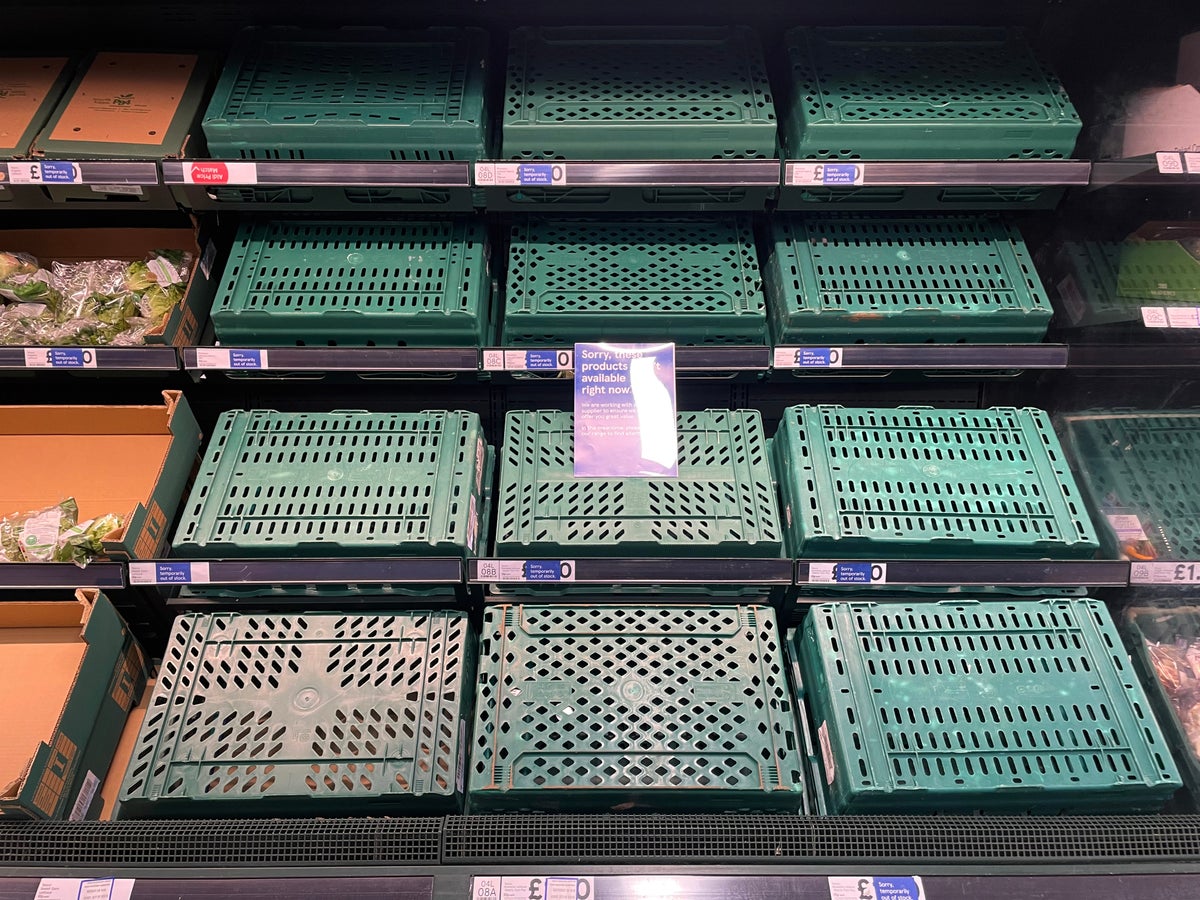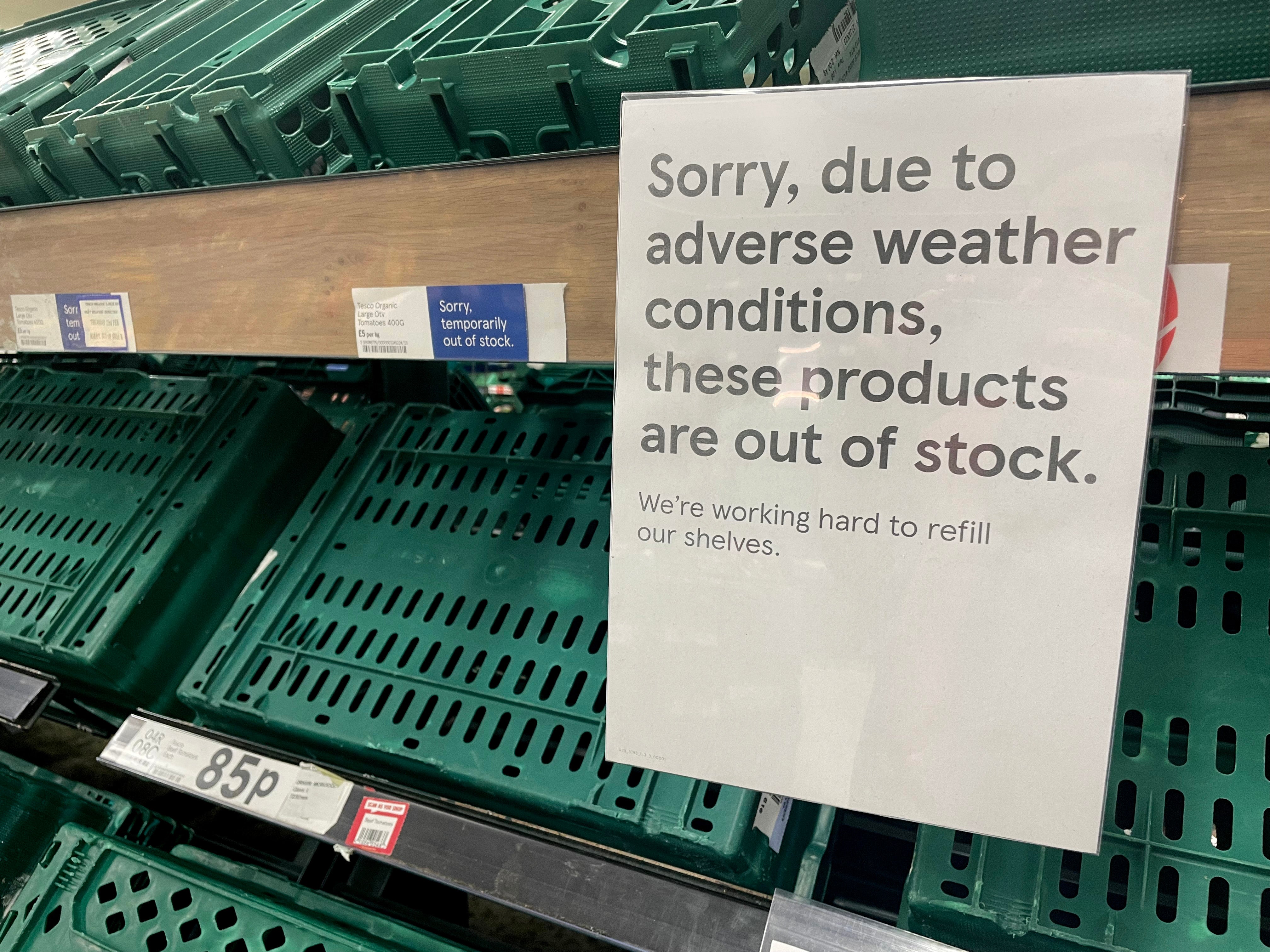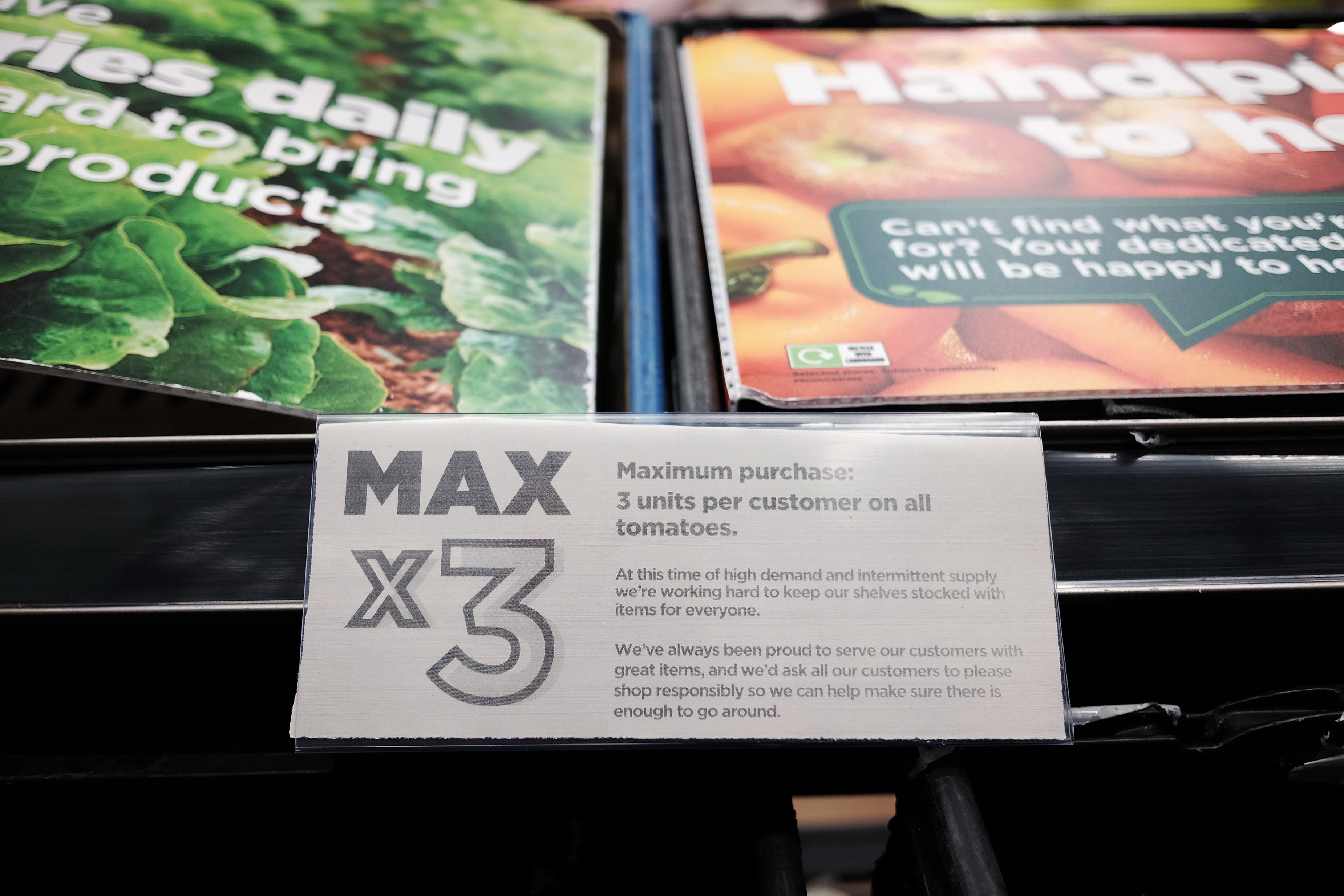
Supermarkets could face a shortage of carrots and cauliflower within weeks, British growers have warned, as stores across the UK grapple with near-empty shelves and rationing.
Tesco, Aldi, Asda and Morrisons this week started rationing the sale of tomatoes and other fruit and vegetables because of a lack of imports.
Tomato supplies have been hit by adverse weather conditions in Spain and Morocco, where most British buyers source their fruit during the winter months.
But the record-breaking heat and a lack of rain in the UK last year also means stocks of everyday vegetables grown in Britain are likely to suffer shortages.
Jack Ward, CEO of the British Growers Association, said supermarkets could see shortages of carrots, cabbage and cauliflower within weeks.
He said if stocks run out, it would be difficult to find alternative sources from the continent because of the impact of the adverse weather in Europe.

“The industry is beginning to see the negative impact of last summer’s extreme temperatures and drought on UK crops,” Mr Ward said.
“Volumes are running low as a result of the weather last summer and the situation has been made worse by harsh frosts around Christmas.
“Consequently we may start to see stocks of crops like carrots, leeks, cabbage and cauliflower running low within the coming weeks. Europe has also been hit by adverse weather conditions and so supplies from other parts of Europe may be difficult to source until the new crops start to appear around June.”
Growers also warned of a leek shortage that will see British-grown supplies exhausted by April. Spring onions and spinach are also affected by the shortages.
Tim Casey, chairman of the Leek Growers Association, said: “Leek farmers are facing their most difficult season ever due to the challenging weather conditions.
“Our members are seeing yields down by between 15 per cent and 30 per cent. We are predicting that the supply of homegrown leeks will be exhausted by April, with no British leeks available in the shops during May and June, with consumers having to rely on imported crops.”
It comes after Therese Coffey, the environment secretary, suggested eating seasonal food items would help ease the shortage of fruit and vegetables.
National Farmers’ Union vice president David Exwood told The Independent: “We are repeatedly seeing a predictable combination of factors such as energy costs and weather leading to empty supermarket shelves. Our UK food resilience is currently gone. The government needs to take this seriously.
“Producers must have the confidence they need, working within a fair and transparent supply chain, ensuring fair and sustainable returns so they can do what they do best; produce nutritious, high quality British food to meet demand from shoppers.”

Meanwhile, the Lea Valley Growers Association has said some of the UK’s major growers are delaying planting crops because of high energy costs.
The group has about 80 members across an area that includes Greater London, Hertfordshire and Essex who produce around three-quarters of the UK’s cucumbers and peppers, as well as a lot of aubergines and tomatoes.
The association’s secretary Lee Stiles, told the BBC that high energy costs and low supermarket prices are making it harder for growers to earn a living. Many are delaying planting or growing less and about 10 per cent have left the sector altogether.
Greengrocers have also seen a rise in footfall as they are wiling to pay higher prices for supplies than supermarkets.
Paul Gritton, 54, manager at Alans Apple in Kingsbridge, south Devon, told The Independent: “I am busier at the minute because just round the corner from me there is a Tesco and a Morrisons, so they are all piling in here. It’s been a lot busier today. It’s been non stop out there. It’s going to be about another three to four weeks maybe until the shortages stop.
“I have been paying higher prices for supplies like peppers. I think the supermarkets are just too tight to pay. I know that when things go back to normal 95 per cent of the people coming in here will go back to the supermarkets,” he said.







